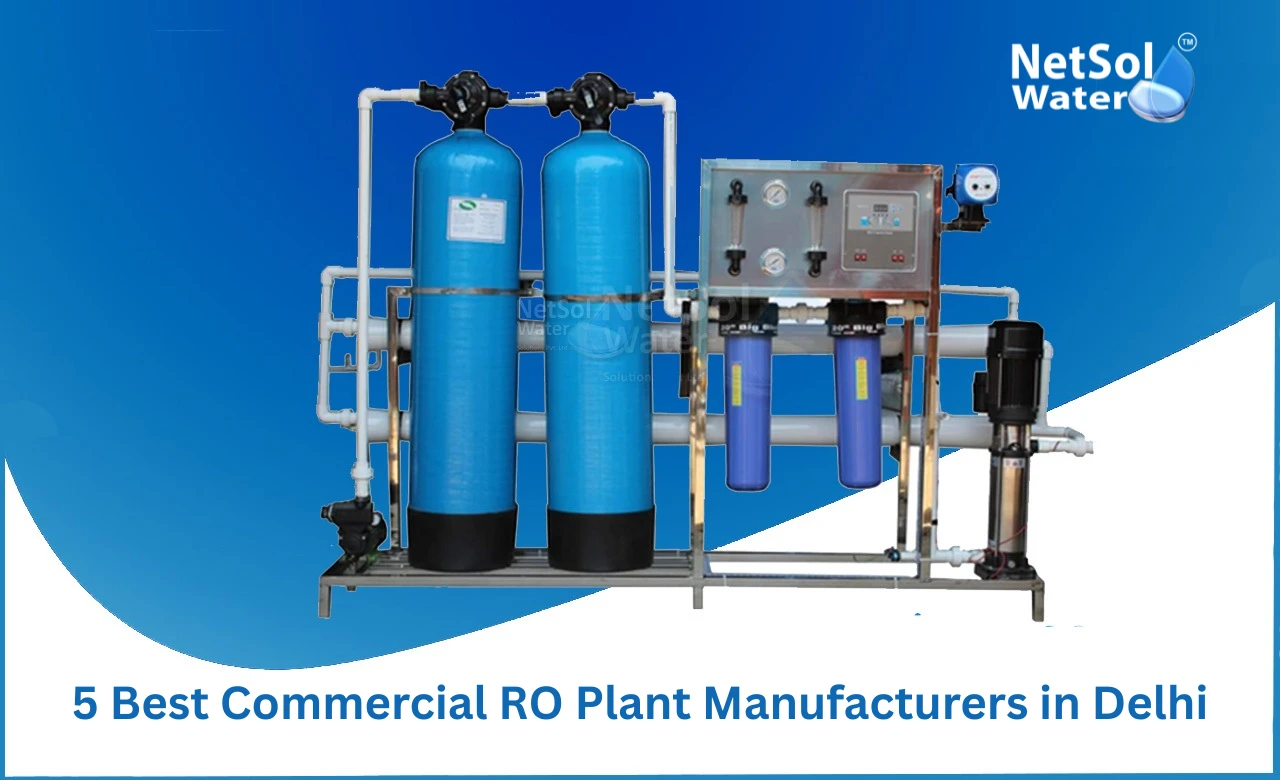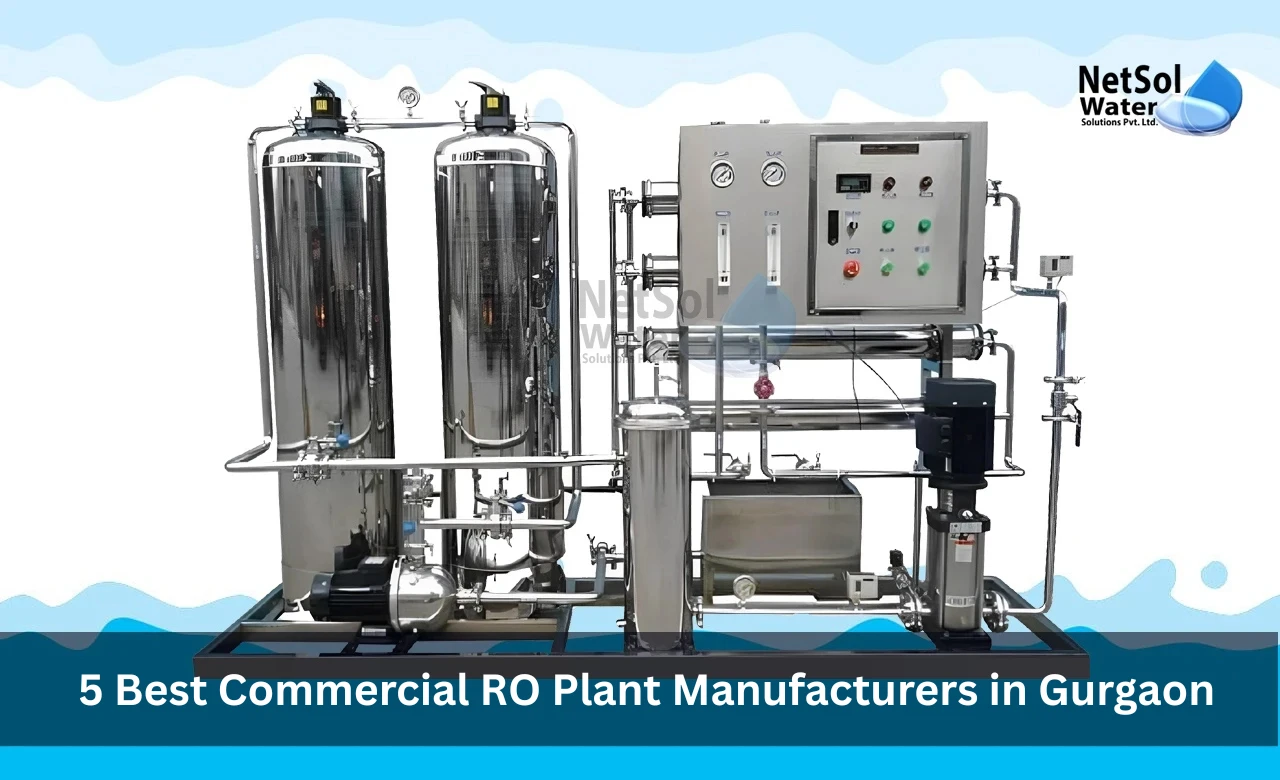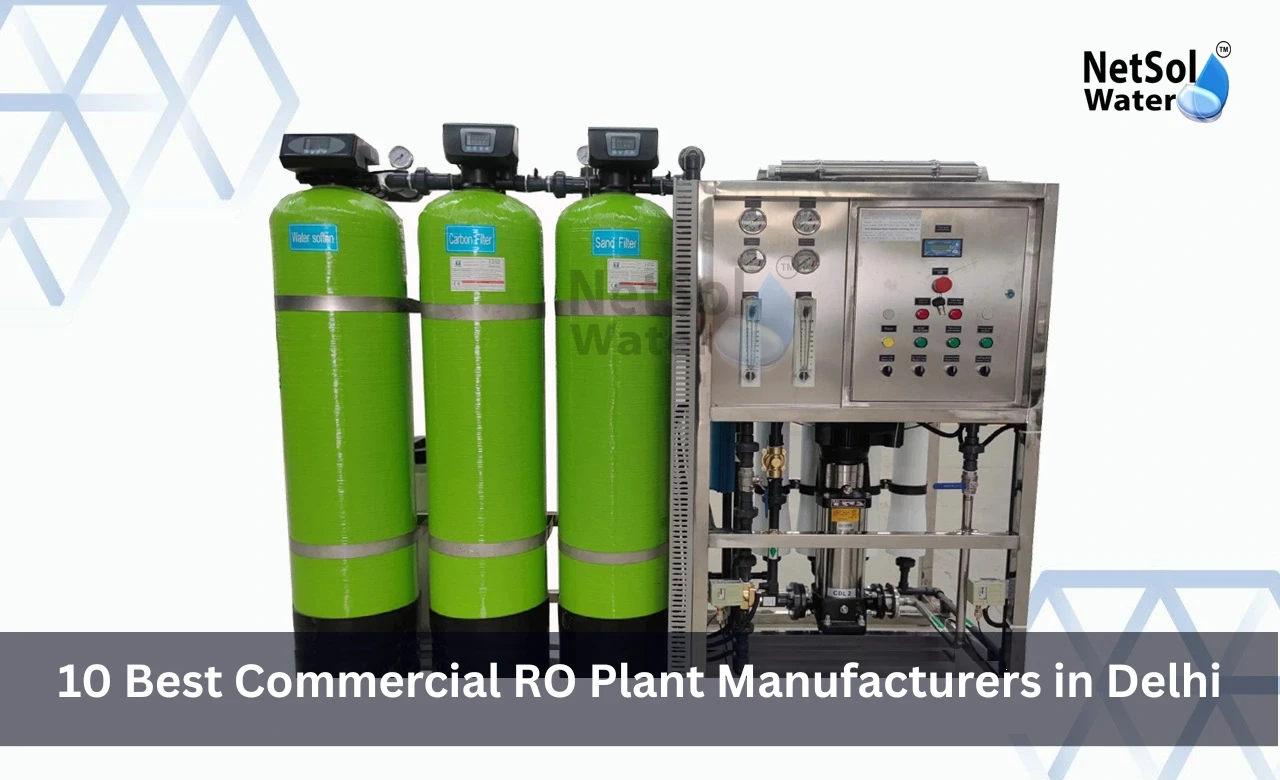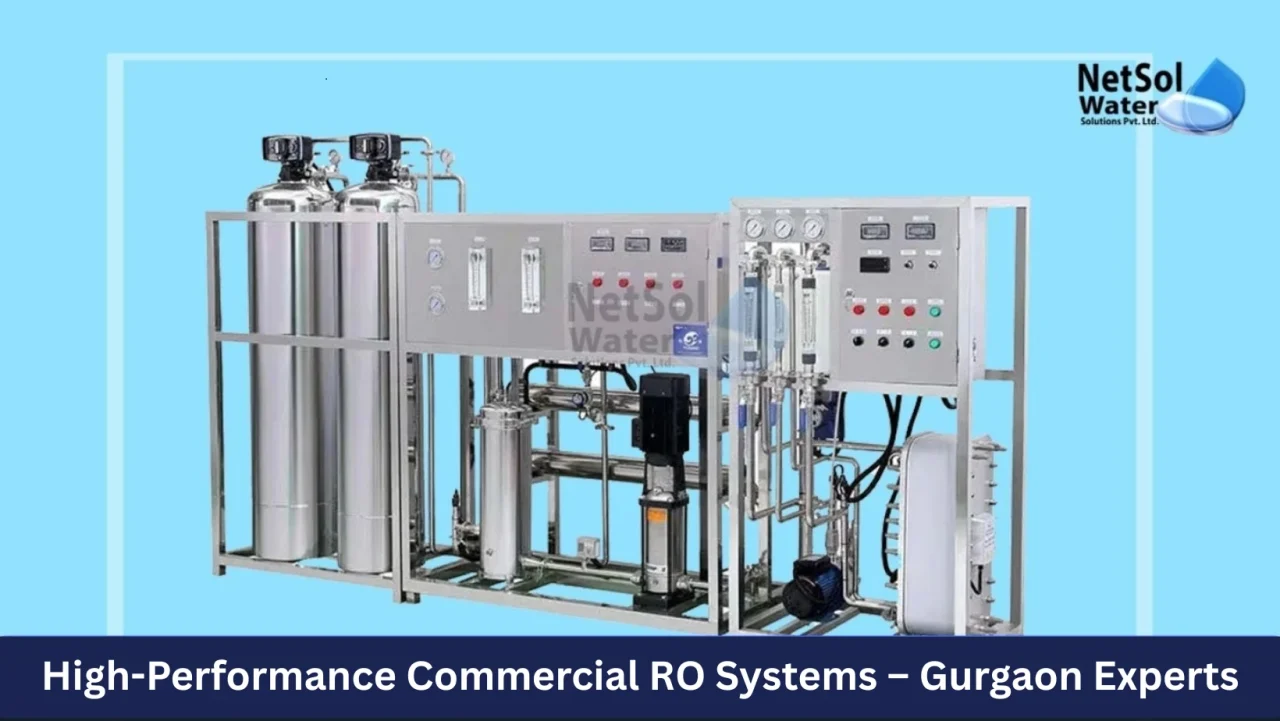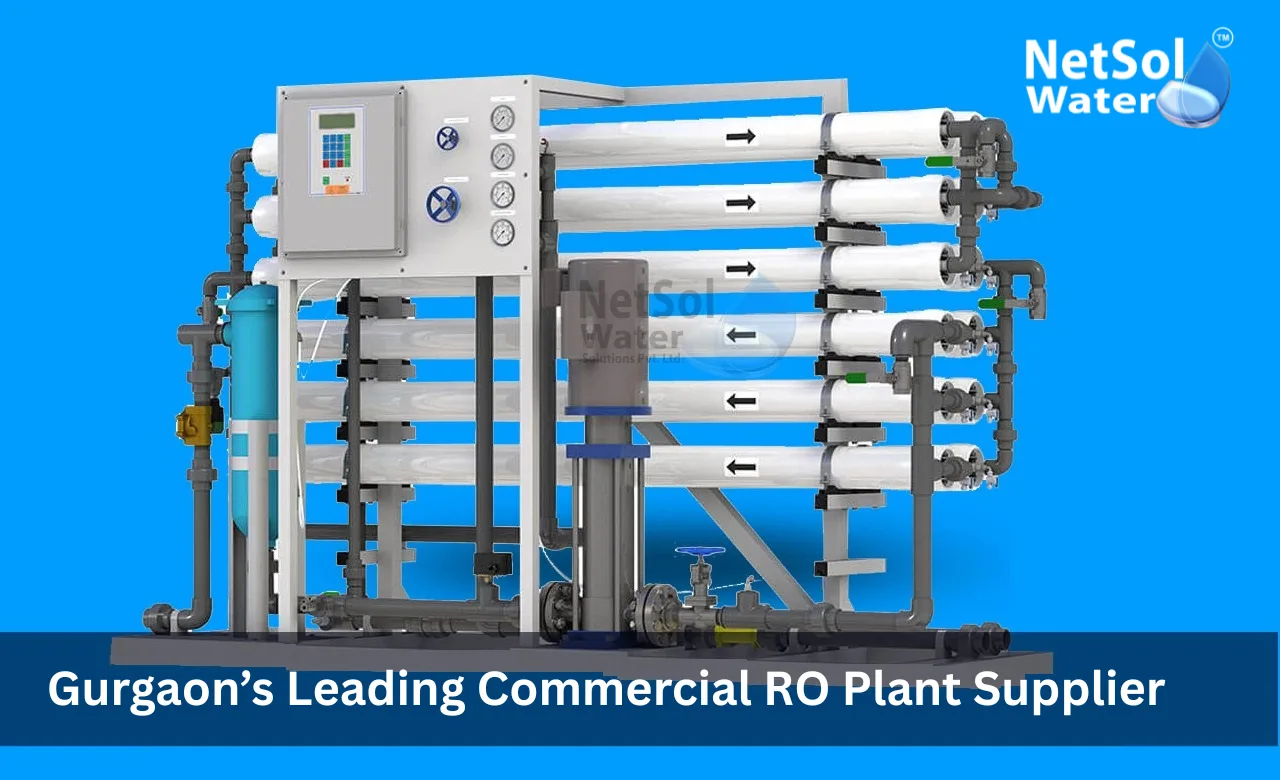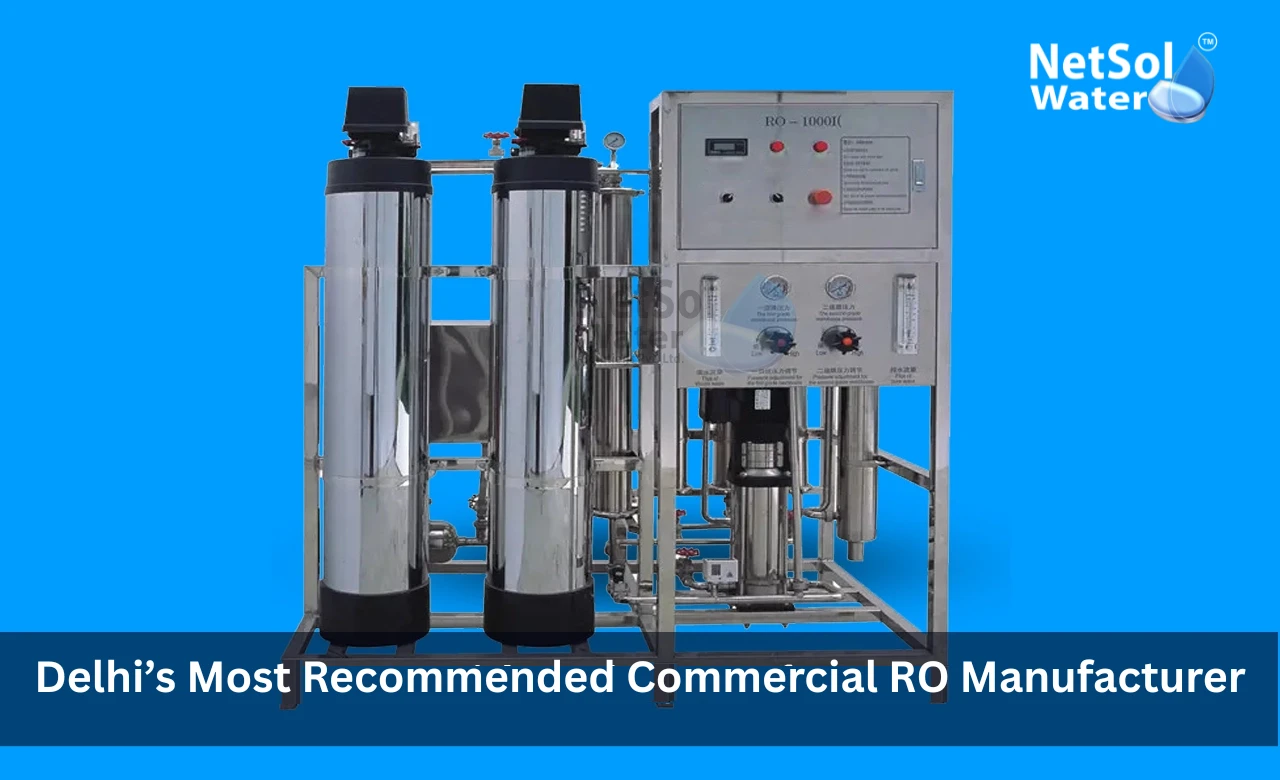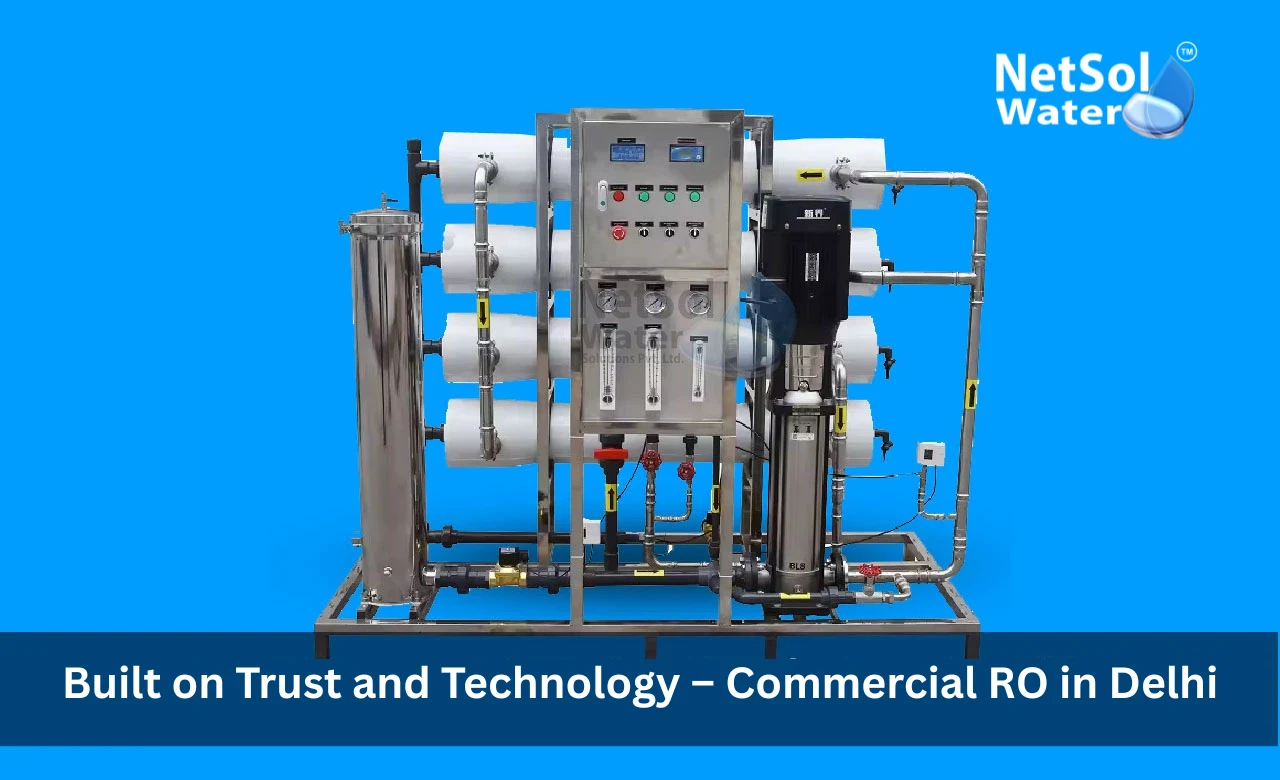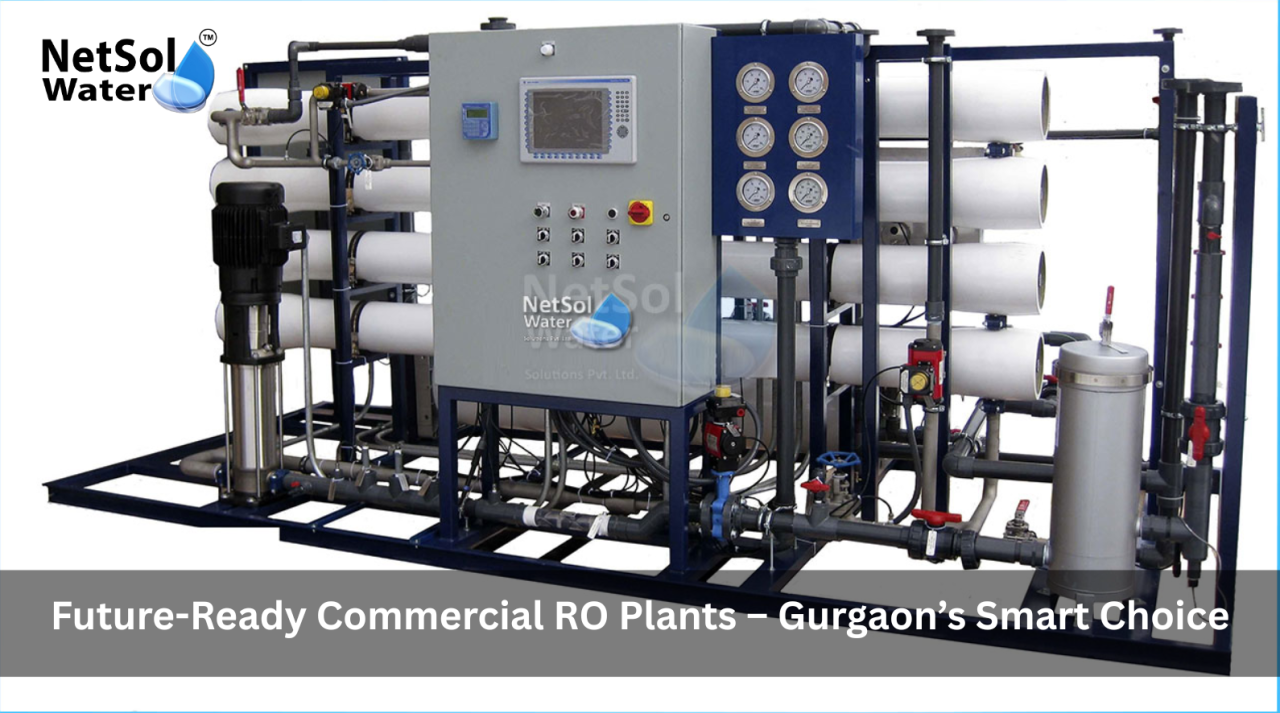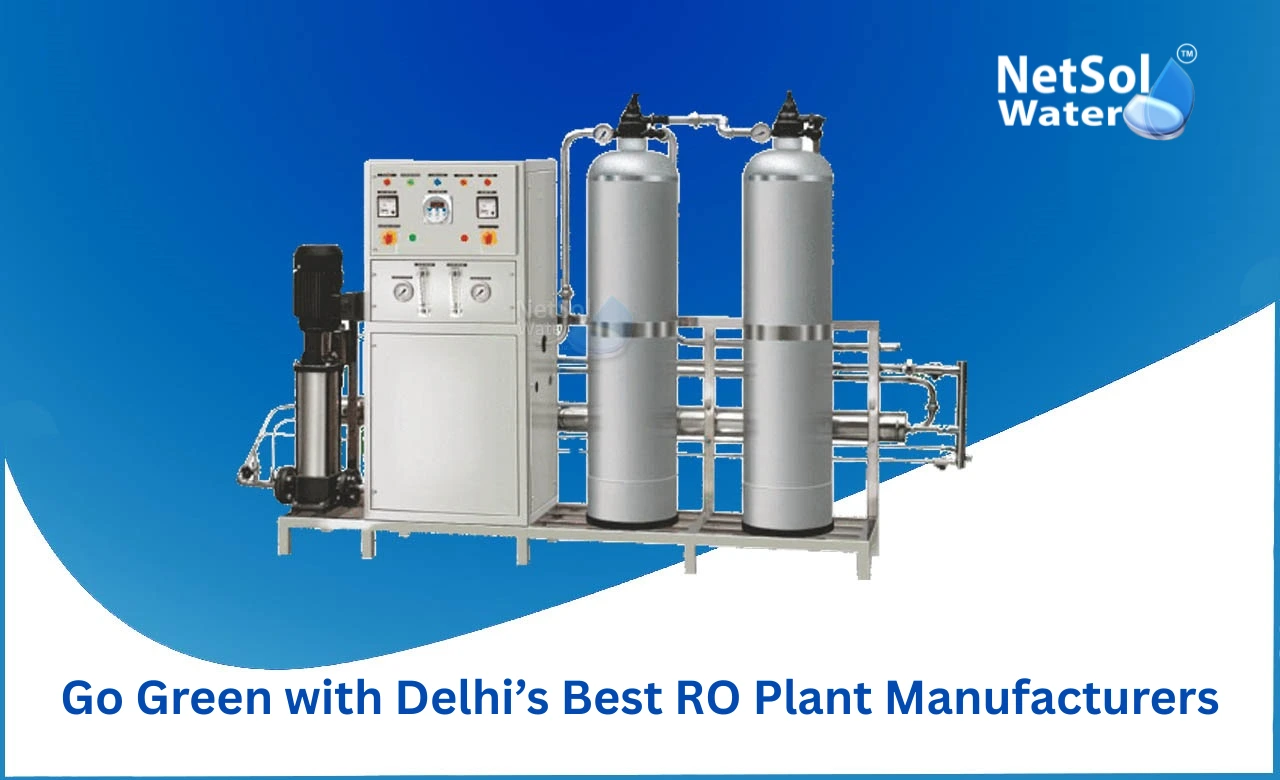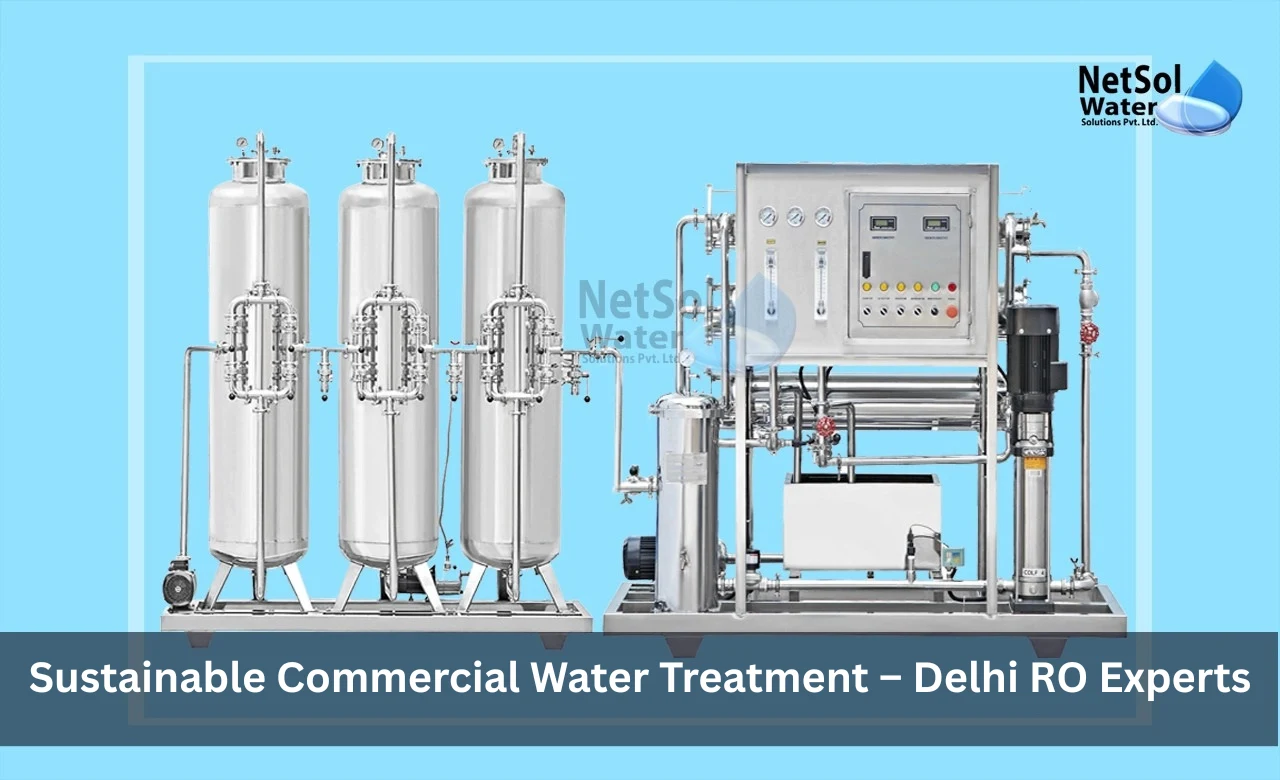5 Best Commercial RO Plant Manufacturers in Delhi
It is important to find a good commercial RO plant manufacturer for companies that rely on pure and clean water. From the hospitality industry, hospitals, schools, and industries, a well-constructed RO lant can provide safe water every day. If you are Delhi-based and want to know about reliable manufacturers in the business, you are on the right page. Here, we will also feature the 5 Best Commercial RO Plant Manufacturers in Delhi.
5 Best Commercial RO Plant Manufacturers in Delhi
1. Netsol Water – Reliable Manufacturer of RO Solutions
We at Netsol Water have established ourselves as among the top commercial RO plant manufacturers in Delhi based on quality, performance, and customer satisfaction. We provide a vast array of commercial RO plants catering to the specific requirements of various industries.
We stand out with our after-sales service and dedication to innovation. We employ the finest-quality components, high-performance membranes, and leading purification technology to provide customers with efficient water treatment solutions. Whether small-scale or large industrial applications are your need, we offer energy-saving systems that are durable.
Our organization also delivers end-to-end installation, assistance, and maintenance services so that your RO plant keeps functioning at maximum efficiency. When companies consider reliable and cutting-edge RO plants in Delhi, they consider us.
2. Urban RO Systems
Urban RO Systems is another best commercial RO plant manufacturers in Delhi that provides commercial RO plants to different industries. They are well-liked for their customized solutions and quick customer support. With a large network and experience of many years, Urban RO Systems has effectively catered to restaurants, schools, and other institutions within the city.
Their RO plants are designed using tried and tested technology and come with AMC (Annual Maintenance Contracts), allowing clients to remain stress-free regarding system maintenance.
3. Aqua Pristine
Aqua Pristine has been in the business of water treatment for decades and is among the leading commercial RO plant manufacturers based in Delhi. Aqua Pristine provides customized RO systems that match the precise requirements of clients belonging to various business sectors.
Their customer-oriented design and quality make them the best among the rest for those in need of reliability. They also provide post-installation service and technical support to guarantee hassle-free plant operation.
4. Wave Water Solution
Wave Water Solution is another well-known name among RO manufacturers in Delhi. With their state-of-the-art infrastructure and technical expertise, they produce RO plants that ensure effective purification on a commercial scale
The company is valued for providing affordable solutions without sacrificing quality. Their systems have multiple capacities, and they provide complete assistance for site visits, system installation, and post-sale maintenance.
5. Indian Ion Exchange
Indian Ion Exchange has a strong presence in the commercial RO segment in Delhi. They design and supply RO plants that serve hotels, offices, malls, and hospitals. Their expertise lies in creating systems that are easy to use, durable, and require minimal maintenance.
Their dedicated team offers consultation and site assessment services before suggesting the right RO setup for clients. This personalized approach has earned them a reliable position in the market.
Why Choosing the Right Manufacturer Matters
Choosing the right manufacturer for a commercial RO plant is not just about price. It’s about quality, performance, and long-term service. The best commercial RO plant manufacturers in Delhi offer:
- Tailored Solutions: Not every company has identical water requirements. A quality manufacturer will offer solutions designed to meet your needs.
- Durable Components: Durable membranes, pumps, and filters make your plant run well and save cost of operations.
- Genuine After-Sales Support: Proper maintenance, availability of spare parts, and professional advice help ensure the system runs continuously without interruption.
- Installation & Training: Careful installation and training of employees ensure the system works efficiently from day one.
- Environment Compliance: Leading manufacturers adhere to all government and environmental regulations to provide safe and environmentally friendly operations.
Why Netsol Water Should Be Your First Choice among the 5 Best Commercial RO Plant Manufacturers in Delhi.
We at Netsol Water don’t stop at simply selling commercial RO plants. We aim at establishing a long-lasting relationship with the customer. From requirement understanding to designing, installation, and maintenance of the system, we provide total solutions at one place.
Our staff consists of water treatment professionals who infuse every project with their vast expertise. This is why numerous of our clients keep coming back to us year in and year out. We employ the newest technologies to ensure that our RO plants are industry standard and ready for the future.
When people ask for the best commercial RO plant manufacturers in Delhi, our name comes up not just because of our quality but because of the trust we have earned.
Conclusion
Clean water is key to any business, and an efficient RO plant can turn the game around. From energy-saving to maintaining purity consistency, your manufacturer’s choice can be a game-changer. The 5 best commercial RO plant manufacturers in Delhi such as Netsol Water, Urban RO Systems, Aqua Pristine, Wave Water Solution, and Indian Ion Exchange, bring you not only a machine—but a comprehensive water treatment solution.
If you are thinking of investing in a trusted commercial RO plant, we at Netsol Water can assist you. Our professionals stand ready to assist you and provide a solution that is best for your business needs. Get in touch with us now and feel the difference that quality engineering can offer.
Do you need an advice or assistance on selecting the best water and waste water treatment unit? We have solutions for all your problems!
Let us know your problem, our experts will make sure that it goes away.
For an assistance or related query,
Call on +91-9650608473
Or write us at enquiry@netsolwater.com

